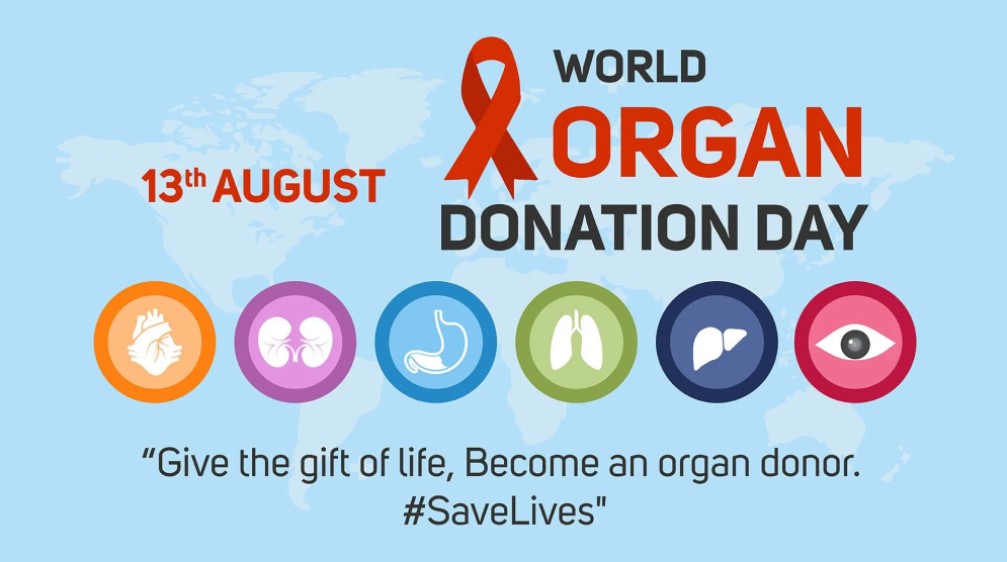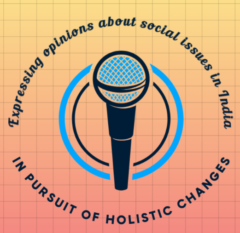
World Organ Donation Day this year marks a vital moment for millions. Moreover, the theme “Answering the Call” urges action beyond symbolic awareness. Imagine, therefore, the millions of lives saved if everyone pledged to donate. Consequently, are we, as a nation and individuals, ready to respond? Hence, join me as we explore how India embraces hope through organ donation. Ultimately, let us journey through its progress, barriers, and inspiring possibilities for the future.
The 2025 Theme: “Answering the Call” — A Collective Mission
Firstly, World Organ Donation theme for 2025, “Answering the Call” demands unified commitment across India. In parallel, the campaign “Angdaan – Jeevan Sanjeevani Abhiyaan” involves citizens, doctors, and policymakers equally. Additionally, Health Minister J.P. Nadda calls donors national heroes inspiring change. Furthermore, Aadhaar-based digital pledge platforms have boosted organ donation awareness and registrations. However, cultural fears and myths still create hesitation among potential donors nationwide. Therefore, sustained, community-driven education is essential to turn awareness into concrete action.
Historic Evolution: India’s Long Path in Organ Donation
To begin with, the history of organ transplantation in India dates back to Sushruta. Subsequently, modern transplantation began in 1994 with the first deceased donor heart operation. Furthermore, the Transplantation of Human Organs Act (THOA) of 1994 laid the legal foundation. In addition, the creation of NOTTO in 2014 improved coordination and transparency significantly. Consequently, India progressed from 0.08 to nearly 1 deceased donor per million by 2024. Yet, despite that growth, rural communities still struggle with infrastructure and low awareness.
India’s Organ Donation Growth (2013–2025)
| Year | Organ Transplants | Deceased Donor Rate (per million) | Global Benchmark (Spain) |
|---|---|---|---|
| 2013 | 4,990 | 0.08 | 35.3 |
| 2014 | 18,378 | 0.34 | 36.5 |
| 2024 | 18,911 | ~1 | 48 |
| 2025* | ~19,000 | ~1 | – |
Source: National Organ and Tissue Transplant Organization (NOTTO)
Organ Donation in India Today: Achievements and Hurdles
In 2024, India achieved nearly 19,000 organ transplants, ranking third globally. However, over 63,000 await kidneys and more than 22,000 need livers urgently. Consequently, Dr. Ravi Wankhede notes that 17 Indians die daily waiting for transplants. Moreover, despite organ donation awareness campaigns, deceased donation remains under 1 per million people. Urban India leads in donations, while rural regions still face severe service gaps. Therefore, bridging this urban-rural divide is critical for equitable organ transplantation access.
Organ Demand vs Transplants in India (2024)
| Organ | Waiting List | Transplants (2024) | Shortfall |
|---|---|---|---|
| Kidney | 63,000+ | 13,476 | 50,000+ |
| Liver | 22,000+ | 3,793 | 18,000+ |
| Heart | ~800 | 242 | ~550 |
| Lungs | ~1,000 | 110 | ~900 |
Source: NOTTO
Myths and Misconceptions Holding India Back
Unfortunately, many still believe donation disfigures the body permanently or delays rituals. Additionally, others think brain death may be reversible with better treatment. Moreover, some fear organs go only to the rich or well-connected. However, Dr. Reddy asserts, “No one is too old or insignificant to donate.” In reality, brain death is irreversible and confirmed through strict certification protocols. Importantly, most major religions view organ donation as noble, charitable service to humanity.
India’s Legal and Ethical Framework: Ensuring Trust
Significantly, organ donation laws in India are governed by THOTA of 1994. Moreover, 2011 and 2025 amendments added stricter penalties and robust transparency measures. Additionally, hospitals now mandate permanent transplant coordinators to facilitate timely donor consent. In parallel, the government allocates more funds to rural donation infrastructure projects. Consequently, on World Organ Donation Day, PM Modi urged, “Let’s make organ donation a people’s movement.” Thus, enforcement of ethics and law builds the trust essential for public participation.
The Unsung Heroes: Families and Recipients
Crucially, in deceased donation cases, consent often depends on grieving family members. Therefore, cultural barriers and fear make these consent discussions complex yet vital. For instance, Meena Kumari from Lucknow donated her son’s organs, saving four people. Moreover, she reflected, “In our darkest hour, we found a reason to hope.” Consequently, such courage showcases the emotional depth underlying organ transplantation in India. Indeed, families’ bravery transforms personal tragedies into stories of survival and renewed life.
Cultural and Religious Beliefs: Challenge and Catalyst
Understandably, India’s diverse faiths shape perspectives about donation, afterlife, and the body. Nevertheless, some worry about bodily integrity or reincarnation affecting next lives. However, several spiritual leaders actively advocate donation as seva and compassion. For example, Guru Sri Sri Ravi Shankar states, “There can be no greater gift than the gift of life.” Consequently, respectful dialogue combining science and faith helps dismantle deep-rooted misconceptions. Thus, collaboration with religious authorities becomes a catalyst for increased donations nationwide.
Government Initiatives and NGO Roles in 2025
Importantly, the 2025 “Angdaan Jeevan Sanjeevani Abhiyaan” mobilized mass pledging drives and public events. Moreover, since 2023, over 3.3 lakh citizens pledged online to donate organs. Additionally, NGOs like MOHAN Foundation and Jeevandan lead outreach through schools and media. Furthermore, states such as Maharashtra and Rajasthan pioneered rural tissue retrieval programs effectively. However, underserved and remote communities still need expanded outreach and infrastructural investments. Therefore, combining government policy with NGO innovation is crucial for lasting growth.
What More Needs to Be Done?
Undoubtedly, deeper myth-busting and awareness must start in schools and colleges. Moreover, hospitals require more trained transplant coordinators to manage donor operations efficiently. In addition, rural hospitals need equipment and trained staff for organ retrieval. Consequently, linking trauma centers directly with the NOTTO network can accelerate donor identification. Furthermore, AI-driven matching systems and mobile apps can simplify pledging nationwide. As Dr. Balasubramanian remarks, “Every ambulance, every hospital must link into a golden chain.”
How you can Pledge to donate?
Today, on World Organ Donation Day, you can pledge to donate your organs in India through the official portal run by the National Organ and Tissue Transplant Organisation (NOTTO) under the Ministry of Health & Family Welfare. The pledge page is accessible here:
https://notto.abdm.gov.in/register
This platform allows Indian citizens aged 18 and above to register their organ donation pledge online securely and officially. Since its launch in 2023, over 3.3 lakh citizens have pledged to donate organs, reflecting growing public awareness and participation nationwide.
Additionally, another trusted online pledge portal on the government’s MyGov platform is:
https://pledge.mygov.in/organ-donation
Both links provide easy, official ways for people to commit to the noble cause of organ donation and join the movement on World Organ Donation Day 2025.
I recommend using either of these secure and government-backed websites to register your pledge today, on World Organ Donation Day. Your simple act can save many lives!
India’s Miracle of Hope — Answering the Call Today
Ultimately, World Organ Donation Day 2025 symbolizes a beacon of hope for India. To succeed, the government must strengthen schools’ programs and improve rural health systems. Moreover, larger budgets and public honors for donor families increase societal motivation. Additionally, strict laws against trafficking with digital transparency bolster trust in the system. As Dr. Devi Shetty reflects, “Saving a life is society’s redemption.” Therefore, I ask you—will you answer the call and join India’s miracle of hope?
#WorldOrganDonationDay #OrganDonationIndia #AnsweringTheCall #DonateOrgansSaveLives #OrganDonationAwareness

Sermonising is easy.
How many people who exhort organ donation have themselves pledged to donate?
If all the medical fraternity – students, para medics, doctors and the like have pledged for the cause it will make a huge impetus. But they won’t.
Charity begins at home.